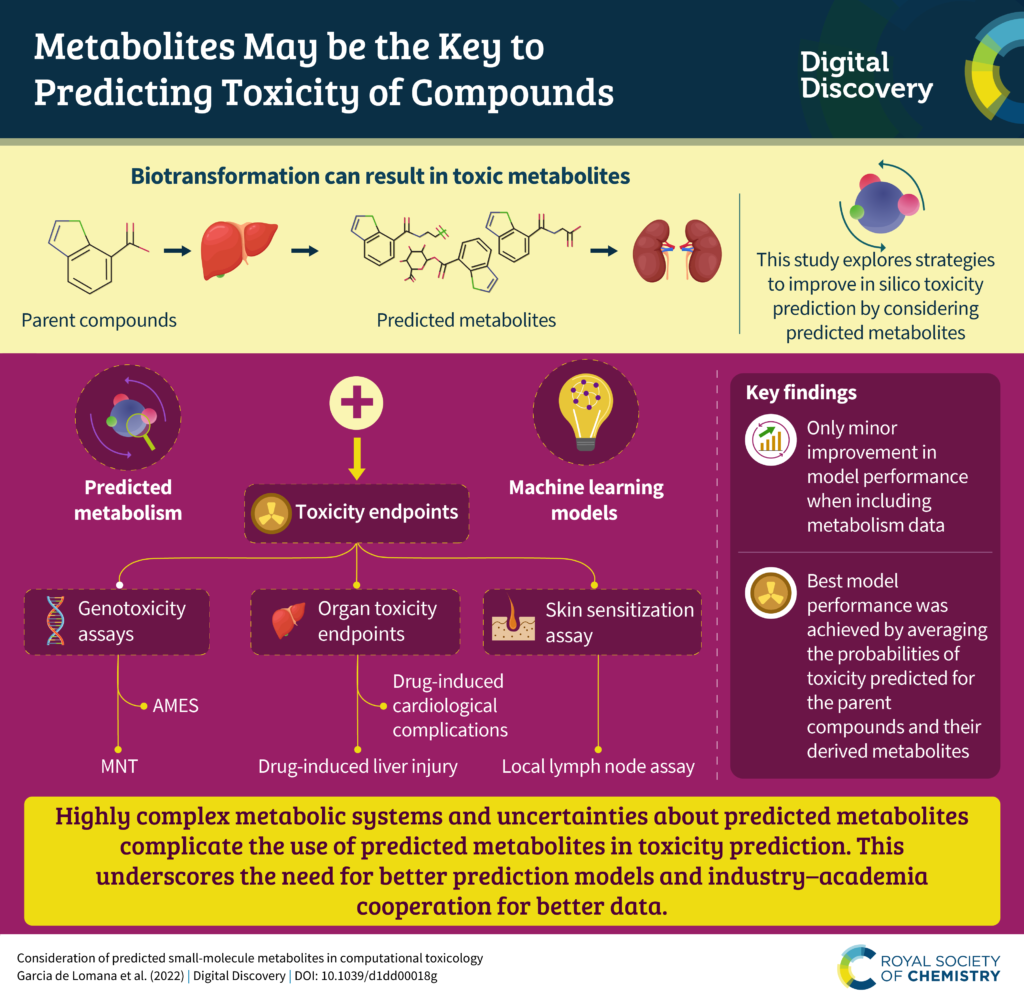
Discover more about this research in the open access article:
“Consideration of predicted small-molecule metabolites in computational toxicology”
Miriam Mathea, Johannes Kirchmair et al., Digital Discovery, 2022, 1, 158–172. DOI:10.1039/D1DD00018G

Discover more about this research in the open access article:
“Consideration of predicted small-molecule metabolites in computational toxicology”
Miriam Mathea, Johannes Kirchmair et al., Digital Discovery, 2022, 1, 158–172. DOI:10.1039/D1DD00018G

We’re pleased to share a recording of our first Desktop Seminar, held on 29 March. View the seminar here find out more about the journal, and the research of our editors and authors! We look forward to holding further Desktop Seminars in the near future.
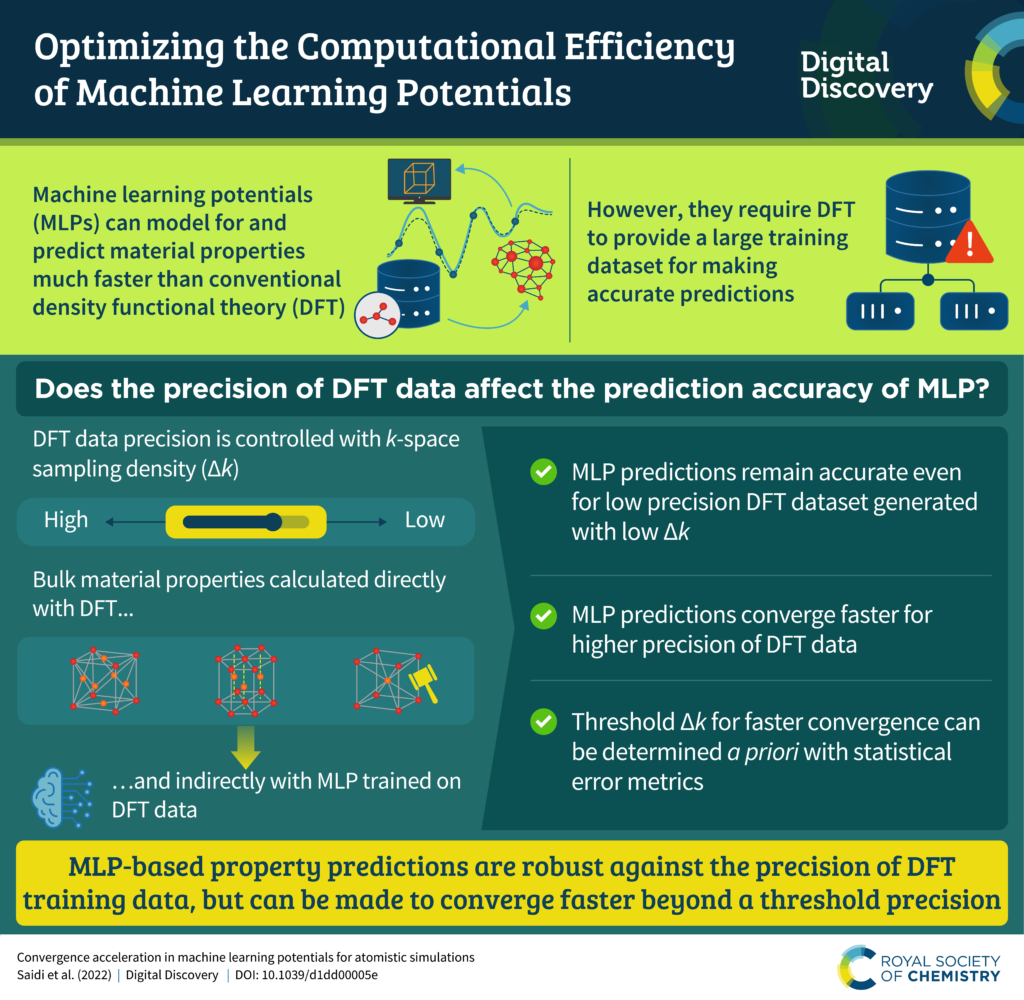
Find out more in the open access article:
“Convergence acceleration in machine learning potentials for atomistic simulations”
Wissam A. Saidi et al., Digital Discovery, 2022, 1, 61–69. DOI:10.1039/D1DD00005E
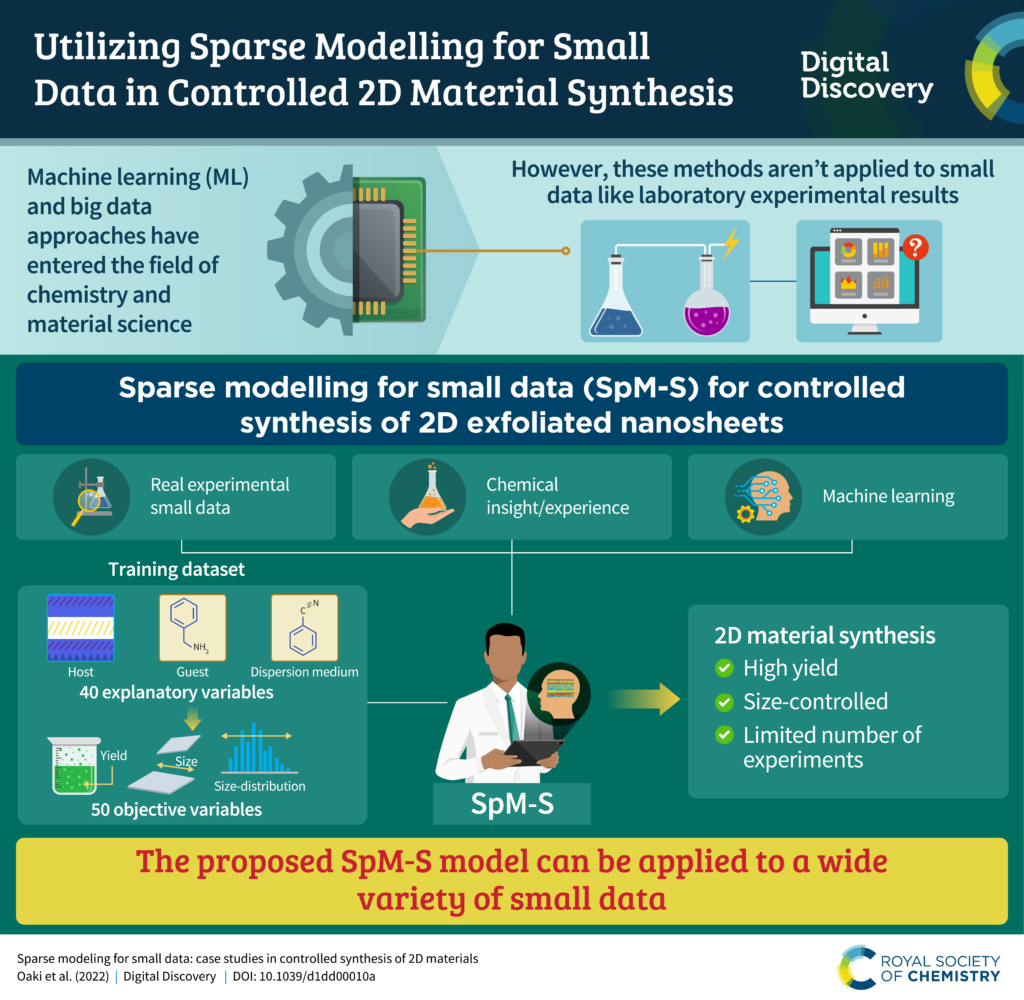
Find out more in the free-to-read open access article:
Sparse modeling for small data: case studies in controlled synthesis of 2D materials
Yuya Oaki et al., Digital Discovery, 2022, 1, 26–34. DOI:10.1039/D1DD00010A

There’s still time to register for the Digital Discovery desktop seminar, taking place on the 29th of March 2022 at 1300 EDT! If you’re interested but can’t make the date, register your interest and we’ll send you a link to the recording afterwards.
| Professor Alán Aspuru-Guzik
University of Toronto, Canada Editor-in-Chief, Digital Discovery Title: “Computer Vision for Self-Driving Labs.” |
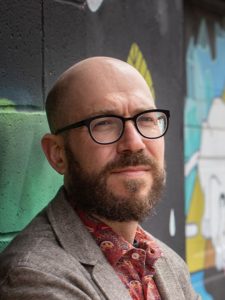 |
| Andrea Angulo and Prof. Miguel A. Modestino
New York University, USA Title: “Leveraging Machine Learning Approaches to Optimize Organic Electrosynthesis.” |
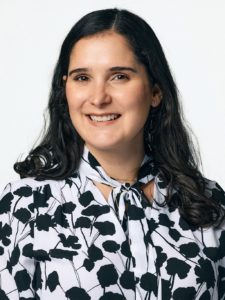  |
| Professor Lilo D. Pozzo
University of Washington, USA Editorial Board Member, Digital Discovery Title: “Materials Acceleration for All through Open Hardware.” |
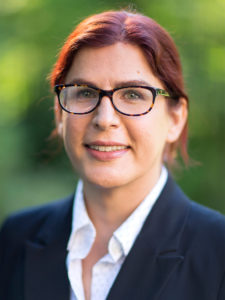 |
We’re excited to announce that Dr Matthew Addicoat of Nottingham Trent University has won the first exclusive Digital Discovery mug in our data reviewer prize draw!
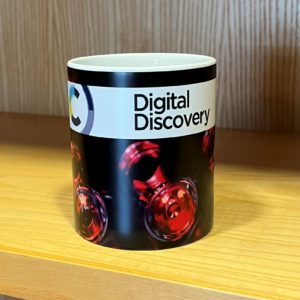
Dr Addicoat has this to say about open data: “Data is important for so many reasons: For me the most obvious reasons are that sharing data allows faster progression by reuse of data and broadening collaboration. It also allows for errors to be found and fixed, which is increasingly important as science increasingly turns to data-driven.”
Thanks to Dr Addicoat and all our other data reviewers for their support! Find out more about becoming a data reviewer in our earlier blog post.

We regret to announce that the desktop seminar scheduled for 24 March has been cancelled due to exceptional circumstances. We are sorry for the inconvenience. We hope to run a similar webinar in the near future. Note that the desktop seminar on 29 March will continue as planned.
We are pleased to announce two free desktop seminars to mark the publication of the first issue of Digital Discovery. In these 90-minute seminars, meet the authors and editors of Digital Discovery and learn about the exciting experimental and computational work being performed to accelerate scientific progress.
If you’re interested in either seminar but can’t make the date, register your interest and we’ll send you a link to the recording afterwards.
| Professor Yuya Oaki
Keio University, Japan Title: “Sparse modeling for small data (SpM-S) toward digital discovery in chemistry and materials science.” |
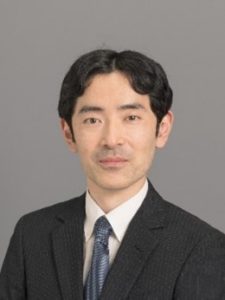 |
| Professor Ekaterina V. Skorb
ITMO University, Russia Editorial Board Member, Digital Discovery Title: “Digital Discovery at Infochemistry Scientific Center of ITMO University.” |
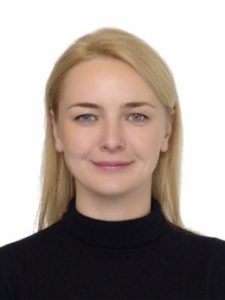 |
| Professor Evgeny A. Pidko
Delft University of Technology, The Netherlands Title: “High throughput computational screening and reaction network analysis for homogeneous catalysis with transition metal complexes.” |
 |
Further information
Register
| Professor Alán Aspuru-Guzik
University of Toronto, Canada Editor-in-Chief, Digital Discovery Title: “Computer Vision for Self-Driving Labs.” |
 |
| Andrea Angulo and Prof. Miguel A. Modestino
New York University, USA Title: “Leveraging Machine Learning Approaches to Optimize Organic Electrosynthesis.” |
  |
| Professor Lilo D. Pozzo
University of Washington, USA Editorial Board Member, Digital Discovery Title: “Materials Acceleration for All through Open Hardware.” |
 |

Digital Discovery are pleased to announce sponsorship of the best paper prize at the 1st Annual AAAI Workshop on AI to Accelerate Science and Engineering (AI2ASE), taking place as part of the 36th AAAI Conference on Artificial Intelligence. We are particularly pleased to be involved given this year’s theme, “AI for Chemistry”.
The annual AAAI workshop on AI to Accelerate Science and Engineering (AI2ASE) is relevant for dissemination of research at the intersection of AI/ML and Chemistry. Digital Discovery and AI2ASE are considering a special issue for selected papers in the chemistry domain; watch this space for more information.
You can find out more about the AI2ASE workshop at the event web site.
Welcome to Digital Discovery!
We are delighted to welcome Professor Ekaterina Skorb, ITMO University, Russia, as a new member of the Editorial Board of Digital Discovery.
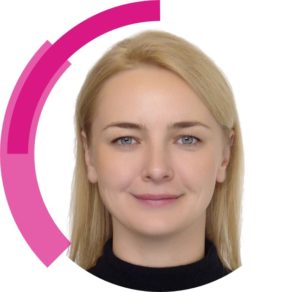
Ekaterina Skorb obtained her PhD in physical chemistry. She was a postdoc and Alexander-von-Humboldt fellow at the Max Planck Institute of Colloids and Interfaces (MPIKG, Germany) with Prof. Helmuth Möhwald. From 2013 she worked with Prof. Peter Fratzl (MPIKG) as a group leader. She was a visiting scholar at Harvard (USA) in Prof. George Whitesides’ group from 2016 to 2017. Since 2017 she has worked at ITMO University, Saint Petersberg, Russia where she is now a Full Professor and Director of the Infochemistry Scientific Center (ISC).
An interdisciplinary view on problems from various directions – chemistry, mathematics, IT, and biology – helps to solve complex issues and guide science development for the next generation. There are several ambitious projects running now at the ISC, such as synthetic cells, chemical computing, and chemical origins-of-life as well as sensor, lab-on-a-chip, and implant development.
Read some of Ekaterina’s recent papers below.
Topological Data Analysis of Nanoscale Roughness in Brass Samples
Mikhail Zhukov, Md Syam Hasan, Pavel Nesterov, Mirna Sabbouh, Olga Burdulenko, Ekaterina V. Skorb and Michael Nosonovsky
ACS Appl. Mater. Interfaces, 2021, DOI: 10.1021/acsami.1c20694
Spatiotemporal Regulation of Hydrogel Actuators by Autocatalytic Reaction Networks
Arpita Paikar, Alexander I. Novichkov, Anton I. Hanopolskyi, Viktoryia A. Smaliak, Xiaomeng Sui, Nir Kampf, Ekaterina V. Skorb and Sergey N. Semenov
Adv. Mater., 2021, DOI: 10.1002/adma.202106816
Infochemistry and the Future of Chemical Information Processing
Nikolay V. Ryzhkov, Konstantin G. Nikolaev, Artemii S. Ivanov and Ekaterina V. Skorb
Annu. Rev. Chem. Biomol. Eng., 2021, 12, 63–95
Photoelectrochemical photocurrent switching effect on a pristine anodized Ti/TiO2 system as a platform for chemical logic devices
Nikolay V. Ryzhkov, Veronika Yu. Yurova, Sviatlana A. Ulasevich and Ekaterina V. Skorb
RSC Adv., 2020, 10, 12355–12359
Please join us in welcoming Professor Skorb to Digital Discovery.
Sign up now and be entered into our prize draw

Postdoc or early career researcher? Interested in building your peer review experience and helping improve open data at Digital Discovery? Consider becoming a data reviewer. New data reviewers for Digital Discovery will be entered in our regular prize draw for an exclusive mug featuring the journal’s logo.
The Royal Society of Chemistry believes that, where possible, all data associated with the research in a manuscript should be Findable, Accessible, Interoperable, and Reusable (FAIR), enabling other researchers to replicate and build on that research.
As such, Digital Discovery expect that authors submit both their code and data to community-recognized data repositories or a general repository if no community resource is available, and submit a Data Availability Statement upon their article submission. Referees have to be able to access code and data during the peer-review process, and public release should be coordinated with the publication of the manuscript.
During the peer review of Digital Discovery manuscripts, the Associate Editor solicits the expertise of at least two reviewers to assess the article and submit a report. For all manuscripts which include original research, an additional data reviewer will also assess and comment on the data and code provided. By becoming a data reviewer, you will be included in our data reviewer pool as a possible assessor of data and the submitted Data Availability Statements.
Visit rsc.li/become-a-reviewer and follow the step-by-step instructions to sign up as reviewer.
Select Digital Discovery as the journal you would like to review for on the reviewer application form.
At the question:
Please let us know where you have found the reviewer application or recruitment information
Select “Other” and add:
Digital Discovery data reviewer
(If you are already a reviewer for the Royal Society of Chemistry, contact us and let us know you’d like to be highlighted as a data reviewer.)
Upon sending your submission, you will be entered into our next prize draw to win an exclusive Digital Discovery mug.
Find out more
Visit our Digital Discovery journal webpage
Learn about Digital Discovery’s data policies for submission
Find out more about being a reviewer for the Royal Society of Chemistry